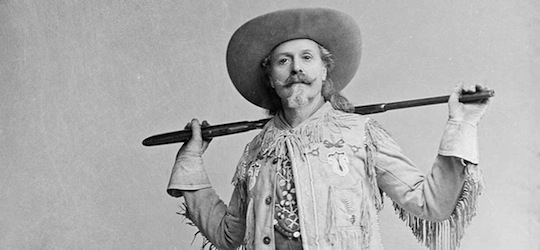The meanings of the Wild West’s frontier iconography varied according to cultural context. When Buffalo Bill crossed the borders into the newly-formed Germany—a society in need of narratives to underwrite its nationalist project—he encountered fertile ground for his tales of the conquest of the American West and the belligerent yet nostalgic portrayal of Native Americans. However, the reasons for the fascination with the West differ quite significantly between American and German audiences. This paper will discuss the differences in reception, based on German newspaper accounts, linking them to the particular cultural climate of turn-of-the-century Germany with its mix of nationalist and provincial concerns.
Furthermore, this paper will address the Wild West’s legacy for German writers such as Karl May, whose ‘Winnetou’ series still enjoys remarkable popularity in Germany today. Overall, the paper argues that despite the enthusiasm for the West, Germans (and other Europeans) did not unequivocally accept the American ideologies behind the spectacle but, instead, focused on those elements that reflected their own cultural priorities. Thus, the traditional tale of Buffalo Bill’s Wild West as a vehicle for the Americanization of Europe has to be revised and complicated.
—–
“Exporting American Exceptionalism: The Wild West in Germany.” Boundary Markers and Border Crossers, Fifty-Second Annual Conference of the Western History Association, Denver, CO, October 7, 2012. Julia Stetler, University of Nevada, Las Vegas.
